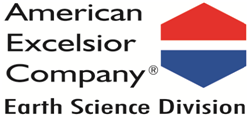 ARLINGTON, Texas – Coir is fiber that comes from the husk of a coconut. Coconuts do not naturally grow well in North America, thus coir products are commonly from South Asian countries such as Sri Lanka, India, Pakistan, Bangladesh, Bhutan, Nepal, Maldives, Afghanistan, and Iran. The majority of coir imports into the U.S. come from southern India and Sri Lanka. Coir fiber is produced by retting, which is the process of soaking the coconut husks in water to remove the fiber from the husks by partial rotting. Retting is a source of pollution causing extensive biotic damage to costal estuaries in India (Nandan and Aziz, 1995; Nandan, 2004). Nandan and Aziz (1995) quantified water quality conditions resulting from the coconut retting process and found large amounts of hydrogen sulphide, a rise in BOD5, and total depletion of dissolved oxygen. It is imperative to verify with the supplier that the coconut fibers were washed with freshwater, as opposed to salt water that could create saline soil/water conditions when applied for erosion or sediment control applications.
ARLINGTON, Texas – Coir is fiber that comes from the husk of a coconut. Coconuts do not naturally grow well in North America, thus coir products are commonly from South Asian countries such as Sri Lanka, India, Pakistan, Bangladesh, Bhutan, Nepal, Maldives, Afghanistan, and Iran. The majority of coir imports into the U.S. come from southern India and Sri Lanka. Coir fiber is produced by retting, which is the process of soaking the coconut husks in water to remove the fiber from the husks by partial rotting. Retting is a source of pollution causing extensive biotic damage to costal estuaries in India (Nandan and Aziz, 1995; Nandan, 2004). Nandan and Aziz (1995) quantified water quality conditions resulting from the coconut retting process and found large amounts of hydrogen sulphide, a rise in BOD5, and total depletion of dissolved oxygen. It is imperative to verify with the supplier that the coconut fibers were washed with freshwater, as opposed to salt water that could create saline soil/water conditions when applied for erosion or sediment control applications.
In the erosion and sediment control industry, coir, or coconut fiber, is used in logs, open weave textiles (OWTs), erosion control blankets (ECBs), turf reinforcement mats (TRMs), and other miscellaneous products. Common applications of coir-based products are streambank stabilization, slope stabilization, areas of concentrated flow, and environmentally sensitive sites that incorporate native vegetation as part of the long-term erosion and/or sediment control solution. Many erosion and sediment control Professionals find it ironic that they are restoring native shorelands and streambanks in North America with products that are imported from half way across the planet that cause environmental damage in developing countries. The carbon footprint of coir products is not ideal because of the extensive shipping required to get it to North America.
Another concern about using coir fiber products is what comes with the coir. A recent shoreland restoration project in picturesque northern Wisconsin had an alarming experience with coir logs from India. Coir Logs, also known as coconut logs, are tubular products that are filled with coir fibers. Several large purple spiders exited the coir logs as they were placed at the toe of the bank. It is unlikely that an equatorial spider species would survive Wisconsin winters; however, there is the possibility that installers may be bitten by a non-native species that could cause damage to their human victim and local medical personnel would not be able treat the bite properly.
Many conservationists and governmental agencies in North America are feverishly working to prevent the spread of invasive species. Why should we continue to allow invasive species into any of our projects? What could happen to the ecosystem if these unknown exotic purple spiders did flourish here? These questions are unknown and better answered by eliminating the use of the products that contain the problem. In addition, what would happen to the human victim if one of the large purple spiders bit them? Medical professionals may or may not be able to treat the human victim properly because the culprits are unknown to North America.
Are we willing to restore shorelands and other sites in North America with foreign products at the expense of coastal estuaries in the Indian subcontinent and at the cost of burning more fossil fuels to bring the products here? Are we also willing to risk human health/life and the potential of introducing an exotic species, or is it time the erosion and sediment control industry diversifies into native alternatives?
Help protect our erosion and sediment control professionals, stop environmental degradation of coastal estuaries in others’ backyards, prevent the potential spread of invasive species, and reduce the carbon footprint on your next project by utilizing products from North America in place of coir.
Works Cited
Bijoy Nandan, S. and P. K. Abdul Aziz. 1995. Pollution Indicators of Coconut Husk retting areas in the Kayals of Kerala. International Journal of Environmental Studies. Vol. 47, pp 19-25.
Bijoy Nandan, S. 2004. Biodiversity status and restoration measures of the unique backwater ecosystems of the south west coast of India.
Mariquita Sheehan is a Lake Conservation Specialist for Vilas County, WI (mashee@co.vilas.wi.us) and Kurt Kelsey, M.S., CPESC, CPSWQ, is Director of Technical Services, American Excelsior Company (kkelsey@erosionlab.com).
ABOUT AMERICAN EXCELSIOR COMPANY
American Excelsior Company is a national manufacturer of erosion and sediment control products and produces a number of branded products including Curlex® erosion control blankets, Recyclex® turf reinforcement mats.
For more information about American Excelsior Company or their products, visit: www.Curlex.com or call (800) 777-SOIL (7645).











